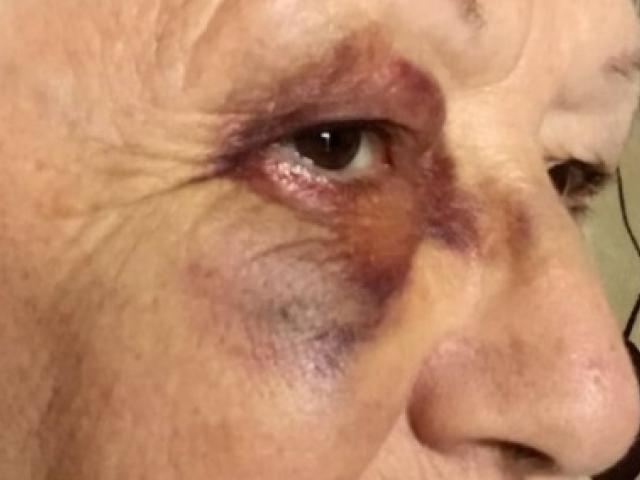
The 21-year-old Gisborne resident, who continues to have interim name suppression, appeared in Auckland District Court today.
Judge Debra Bell granted defence lawyer Emma Priest’s request to not yet enter a conviction until sentencing. A date for that hearing has not yet been scheduled.
The victim, who did not attend today’s hearing, told The New Zealand Herald she was pleased to hear about the guilty plea.
“I am feeling very good today,” said the grandmother of six, who suffered a concussion and facial bruising as a result of the attack.
“I’m glad he has pleaded guilty. That made me feel a lot better.”
The defendant was charged in April, nearly a month after the short-lived visit to New Zealand by controversial British speaker Kellie-Jay Keen-Minshull - a self-described women’s rights activist, better known as Posie Parker, who has been labelled by critics an anti-transgender rights activist.

Attendance ranged from Green Party co-leader Marama Davidson to a large procession of Destiny Church’s Man Up motorcyclists.
Another person has been charged with assault for allegedly throwing tomato juice at Parker. That case remains before the courts.
The charge against the then-20-year-old LGBTQ rights activist came after footage circulated widely on Twitter showing a heated meeting of the two groups that day. In the video, he can be seen striking the woman in the face.
Court documents obtained by the Herald today note that the defendant and the victim did not know each other before the raucous gathering.
“About 11am an unknown person began pulling out pegs placed in the ground to separate the two groups,” police noted in the summary of facts for the case. “The group protesting against the speaker Posie Parker pushed over a metal fence and began approaching the group supporting her.
“The victim put her hands out to stop the group and made contact with a female from the opposing group, the same one that had been removing the pegs.”
The defendant approached the victim after noticing the physical contact, court documents state.
“The victim turned towards the defendant who responded by punching the victim three times in the head area,” police noted.
“In explanation, the defendant stated he believed the victim had assaulted a fellow protester and that the victim was going to assault him next.”
Assault carries a maximum possible sentence of one year’s imprisonment. The man’s lawyer indicated today that she intends to seek a discharge without conviction. She also requested a referral for restorative justice, in which the defendant and the victim could meet in a controlled setting if the victim agreed.
The victim told the Herald today she was ready for the meeting.
“I want to meet up and have my say with him, but the thing which sticks in my craw is even before we have had that face-to-face restorative meeting his lawyer is making submissions for dismissal without conviction and permanent name suppression,” she said.
“He hasn’t said sorry and I feel the rights of victims are not upheld.
“It’s like the victim has totally been forgotten out of the justice system.”
The victim said she would look her attacker in the eye and ask him why he attacked an old lady who was not causing him any grief.
“I will let him have his say and then go from there,” she said.
Although a relatively minor charge, the high-profile case has had some odd twists and turns as it made its way through the criminal justice system.
At his first appearance in April, among those in the court gallery was controversial Auckland restaurateur and former Auckland mayoral candidate Leo Molloy, who wore a fluorescent orange jacket and sunglasses. Molloy and two other men - one filming with his phone and another with a small camera attached to a long selfie-stick - followed the man for several minutes as he left the courthouse.
“You better get used to this - it’s the rest of your life,” Molloy taunted as he followed him down the street.
Molloy later told the Herald that he had done his best to out the man before his arrest and he intended to continue attending his court hearings. Mob violence was reprehensible, he said.
The defendant was later accepted on to the police diversion scheme, which allows first-time offenders to take responsibility for the offence but avoid getting a criminal conviction. The programme is intended to prevent reoffending and requires participants to study their own behaviour and the impact the offence had on the victim.
But last month it was confirmed to the Herald that the diversion scheme had been an administrative error and withdrawn. Police said that the man was “never offered” diversion from police and an initial request was declined by police.













